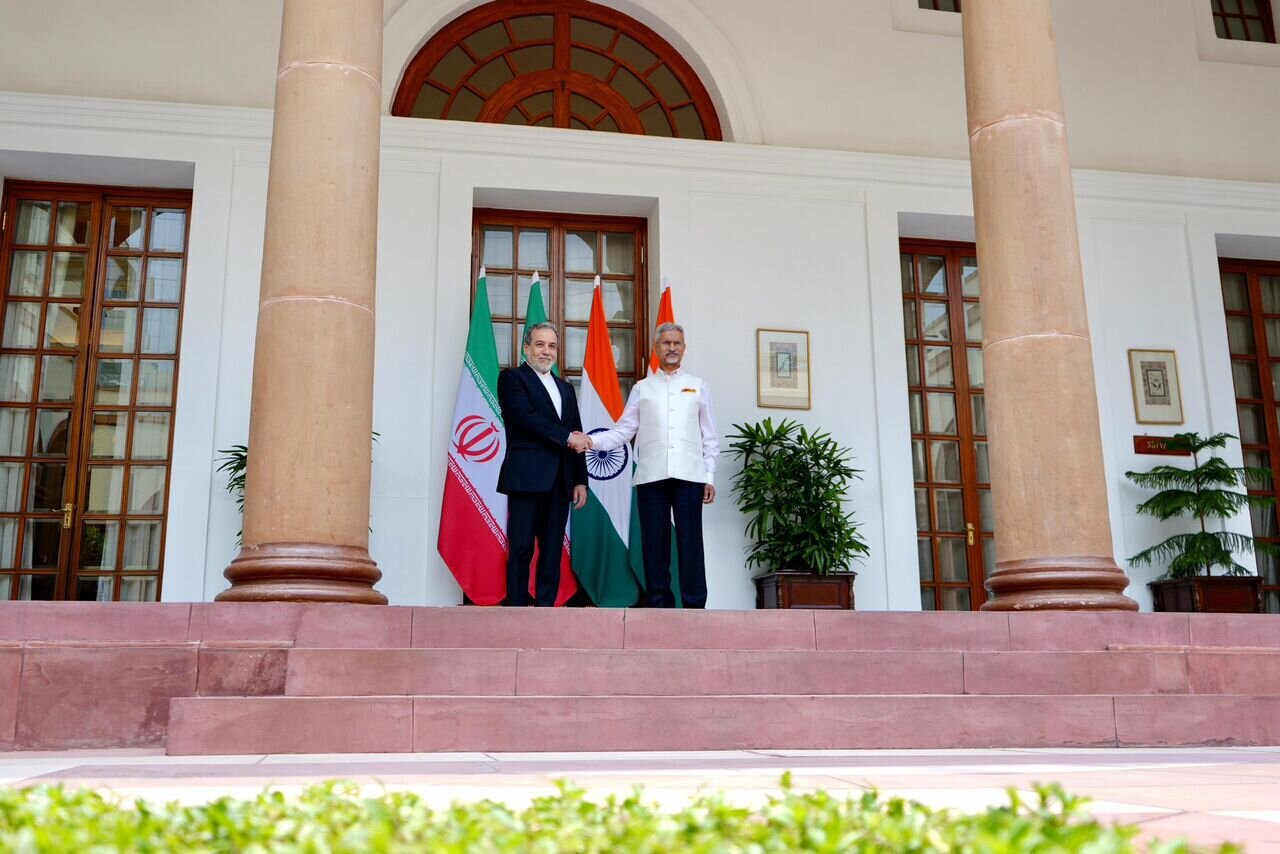Iran, India reaffirm strategic ties at high-level talks in New Delhi

TEHRAN – In a series of high-level diplomatic engagements aimed at reinforcing long-standing bilateral ties and addressing shared regional concerns, Indian and Iranian foreign ministers convened in New Delhi on Thursday for the 20th meeting of the India-Iran Joint Commission.
The talks, held against the backdrop of mounting tensions in South Asia, featured candid discussions on economic collaboration, regional security, and the evolving geopolitical landscape.
Indian External Affairs Minister Subrahmanyam Jaishankar welcomed Iranian Foreign Minister Abbas Araghchi and his accompanying delegation, emphasizing the depth and strategic value of the India-Iran relationship. Speaking at the opening of the joint commission, Jaishankar highlighted the broad progress achieved in recent years, noting that while cooperation has expanded across multiple sectors, some areas still require concerted attention and action.
“The past few years have seen substantial advances in our collaboration, but challenges remain,” Jaishankar remarked. “Our recent consultations — including the meeting between Indian Prime Minister Narendra Modi and Iranian President Masoud Pezeshkian at the 2024 Kazan Summit, and their subsequent phone call on April 26 — have laid out a clear roadmap for how we can move forward together.”
Marking a significant milestone in diplomatic history, Jaishankar also referenced the 75th anniversary of the establishment of formal diplomatic ties between New Delhi and Tehran. “This is not merely a symbolic occasion,” he said. “It reflects a deep-rooted friendship and enduring partnership between our nations — one built on mutual respect, shared values, and a common vision for the future.”
A major focus of discussions was the recent security crisis in Kashmir. “Our response was both targeted and proportionate,” Jaishankar stressed. “India does not seek escalation. However, let there be no doubt — any further aggression will be met with a firm and decisive response.”
Acknowledging Iran’s role as a close regional partner, he urged Tehran to maintain a clear understanding of India’s national security imperatives. “As a neighbor and trusted friend, it is vital that Iran is fully aware of the gravity of this situation and our measured approach to addressing it,” he said.
In response, Iranian Foreign Minister Araghchi expressed appreciation for the warm reception and acknowledged the historic significance of the bilateral relationship. He underscored Iran’s interest in expanding economic cooperation with India, despite the persistent challenges posed by international sanctions.
“Our relationship is grounded in history and sustained by mutual respect and shared interests,” Araghchi said. “While current levels of economic engagement are commendable, they still fall short of our expectations — largely due to external restrictions. We are optimistic, however, that with determination and coordination, we can overcome these barriers.”
Later that day, Jaishankar took to social media platform X (formerly Twitter) to summarize the outcomes of the meeting, stating, “Jointly chaired the 20th India-Iran Joint Commission in Delhi today with Iranian Foreign Minister Abbas Araghchi. We reviewed the full spectrum of our bilateral cooperation and agreed on a number of next steps. We also look forward to celebrating 75 years of diplomatic ties in a meaningful and forward-looking manner.”
Bilateral, regional, and global issues discussed in broader meetings
Araghchi’s visit to India included a series of sideline meetings with senior Indian officials, reflecting the multidimensional nature of the bilateral agenda.
On Thursday afternoon, he met with Indian President Droupadi Murmu at Rashtrapati Bhavan. Discussions during the meeting focused on deepening cooperation across political, economic, and cultural domains. Both sides reaffirmed their commitment to further enhancing relations based on mutual trust and long-term strategic interests.
The Iranian foreign minister also held a key meeting with India’s National Security Advisor Ajit Doval. The talks covered the latest developments in regional and international security, with both sides underlining the urgent need to avoid escalation and promote dialogue to manage crises effectively.
According to a statement released by Iran’s Ministry of Foreign Affairs, Araghchi reiterated Tehran’s view that peace and stability in South Asia are essential not only for regional prosperity but also for global security. He expressed hope that all parties involved in current tensions would act responsibly and pursue de-escalation through diplomacy.
Araghchi arrived in New Delhi on Wednesday evening at the head of a senior-level diplomatic and economic delegation. Addressing journalists upon arrival, he stated that the primary objective of the visit was to convene the long-planned Joint Economic Commission, with a strong focus on reviving trade and investment links.
“This visit includes senior officials from several Iranian economic ministries,” he said. “We are here to explore practical avenues to expand bilateral trade and cooperation in energy, infrastructure, transportation, and other sectors of mutual interest.”
He further emphasized the strategic importance of India-Iran dialogue in navigating regional complexities. “Our political consultations with India have always been close and constructive. In light of recent regional developments, these conversations are even more critical.”
Commenting on the broader geopolitical context, Araghchi noted that Iran supports efforts aimed at defusing tensions. “Iran consistently advocates for restraint and dialogue. We believe that mutual understanding and diplomatic engagement are key to ensuring regional stability.
